- Home
- James Phelan
Red Ice Page 17
Red Ice Read online
Page 17
“He had almost five million US dollars to his name when the USSR collapsed. Four years later, he had bought and sold companies as diverse as Aeroflot and Russia’s leading television station, ORT. His large stake in an oil and gas company, Sibneft, was bought out after a couple of years and with those profits he started his own oil and gas company, UOil. He made billions from the Sibneft deal alone and founded Umbra Corp. That’s when our CIA started its dedicated Umbra task force. We’ve been looking into him with little joy. While most other oligarchs were driven out of Russia by Putin’s government, who saw their power and influence as a threat, Babich kept out of politics and remained squarely in the business of making money. Three of his former business partners from the early days have since been murdered.”
Their familiar faces flashed up on the screens. McCorkell knew the agency had a hand in one of those killings, as Babich had been a double agent for them then, about to sell back to Russia’s Federal Security Service, of which he’d also been a senior player.
“Babich was far less flashy than the other mega-wealthy Russians and that also helped him survive. No Dr Zhivago coats for him. His business MO is low-key, comparatively, which he learned from the mistakes of others. Under Yeltsin, the oligarchs were the shadow government. When Putin moved in, the Siloviki took over.”
“They’re regarded as a direct counterpart to the Umbra network,” Bowden added. “Same kind of concept, different league of guys, different power base entirely.”
A couple of slides of the two known family trees went up. A ‘who’s who’ of the Russian political, business and intelligence services, split roughly in half, as if to highlight two big opposing power bases.
“That’s a fair call,” Valerie said. “The Siloviki are the ex-spooks currently in power, and then there’re those who for various reasons are opposed to them, residing in the Umbra block.”
She clicked the slideshow forward, revealing Umbra’s organisational chart of legitimate companies.
“This is circa mid-nineteen-nineties; it’s more streamlined now with Sibneft oil company—shareholder in the country’s main television channel ORT, which he turned into a propaganda vehicle for Boris Yeltsin in the run-up to the 1996 presidential election.”
She paused, motioned to the CIA Station Chief in Moscow.
“If you look closely at Babich’s political rivals, and even moderates who are within his own block,” the Moscow SC said. “He’s got so much on so many … There’d be hundreds in Russia who want him dead, like seriously dead. And that’s grown since his arrest.”
“Mark, we’re working on that,” Bowden said. “How about since his break-out?”
“There’s been plenty of chatter from the Umbra block,” the Moscow SC replied. “Our computers here are working overtime downloading all the chatter going on out there. Word’s out, they know he’s on the loose. Matter of time before it hits the press here.”
“Then we’ve got a whole new problem to deal with,” Bowden said.
“Putin moved to regain control of the ORT television station and to curb the influence of the oligarchs, who were extremely unpopular with the Russian public,” Valerie said. “Seems Babich entered some kind of truce, selling out of all the former stateowned companies that he’d bought up cheap, but keeping those he founded from scratch—under Umbra.”
“Which means he’s got enormous popular support back here, I can tell you,” the Moscow SC said. “But the government had declared war on him. Just last month, a Moscow court found Babich guilty in absentia of massive embezzlement—related to a decade-old charge he settled on the quiet, way back when. He was sentenced this morning—to eight years in jail and ordered to repay 180 million dollars that the court said he had stolen from the state airline, Aeroflot, in the initial privatisation purchase.”
McCorkell sat a little more upright. That kind of thing certainly was a statement from the Russian government—the sentencing was meant to come after another few months of trial. It was as if they were moving fast to discredit the man who was out there in the great unknown, some kind of phoenix rising.
“It gets better,” Valerie said. “Two hours ago, they brought charges against him for involvement in the murders of several leading critics of Putin’s regime, including ex-spook Litvinenko and journalist Politkovskaya.”
“Timing on that’s too coincidental…” the Moscow SC said.
“They know about the hijacking,” Bowden said. “They know he’s out and on the run. And what—they know he’s gonna make a play?”
“It’s a major shift in how they’ve been treating him,” Valerie said. “Now they’re attacking him from their political base.”
“How so?”
“In 1999 Babich supported Putin’s appointment to the Prime Minister’s position as a result of a secret agreement, where Putin promised his loyalty to Yeltsin and his closest circle, including Babich, guaranteeing them indemnity. Just before the March 2000 elections, Babich unleashed a propaganda blitz that obliterated the opposition. At least two candidates who were widely felt to have a reasonable chance of winning over Putin—the Mayor of Moscow, Yuri Luzhkov, and the former Premier Yevgeny Primakov—were swiftly eliminated through an elaborate smear campaign. Babich has been untouchable ever since.”
“Until now.”
“Until now,” she said. “Now, we see the Russians want him to stay behind bars as much as us—they’ve helped the Italian prosecution and now they’re ramping things up at home in an attempt to make it impossible for him to return.”
The Moscow SC said: “I can speak to my channels in Russian intel, tell them to start sharing—”
“No,” Bowden took centre-stage. “We don’t know if word will get through to Umbra—they’re fucking everywhere, we know that, plenty of them serving in the FSB. Level Five Extraordinary Rendition protocols have been ordered. That comes from the White House. They want this problem to go away.”
McCorkell knew what that meant, and most of the others here would, too: the White House was doing what the government in Moscow was now begging them to do. Politically it was a no-brainer: getting Babich for them would be ridding them of a threat to their power base and they’d recriprocate in kind, with something diplomatic; put pressure on North Korea or Iran, maybe even a peace-keeping force somewhere. The facts were, if Babich were to enter Russia, he just might take his final role of the dice: a tip at power. Not a guy anyone needed in the president’s chair of the world’s second largest military force.
“Make no mistake: the Russian government wants him—perhaps even more than us,” Bowden said. “They’re scared of what he’s told us in detention these past few months, and they’re even more scared now that he’s out there. The race is on, and I intend to win.”
56
THE LOUVRE, PARIS
Zoe still had her phone to her ear and was listening.
Fox noticed her stance change—she was tense as hell, her hand up and lingering at her concealed hip holster. He scanned the crowd behind Renard.
“My guys got pulled off,” she said, reaching for Renard. “We have to leave, now!”
As Boris Malevich approached Renard from behind he fingered the compact nine-millimetre Glock in his pocket. He’d had it at the ambassador’s residence, but he hadn’t used it. He’d never fired a gun at a person in his life. Had never wanted to. But he’d already killed now, hadn’t he? He’d felt Katya’s blood over his knuckles. It could only get easier. Guns made it easier.
From ten metres out the tall man in front of Renard turned around. He looked familiar—and suddenly Malevich knew why he still hadn’t heard from the eight-man team he’d sent to Giverny.
The tall man was Lachlan Fox.
Through the summer weekend crowd, he saw Fox, Renard and the woman start to move away—fast.
Malevich drew his Glock.
“Come!” Zoe said, and they jostled through the crowded courtyard.
Fox sa
w a couple of gendarmes, MP5s slung across their chests, chatting to some girls. The cops looked up as the running trio headed their way.
Next to Fox, Renard was spooked, clutching his satchel tightly to his body.
“Come on!”
A gunshot echoed around the courtyard, sending pigeons into the air and tourists to the ground. Fox knew it was a ninemillimetre pistol, up close. Renard faltered beside him. A second shot rang out—Fox hit the ground. He pulled Renard down hard, beside one of the smaller glass pyramids.
The Frenchman was bleeding heavily, coughing. Fox pushed Renard’s hands to the wound on his chest.
“Hold it tight!” he yelled to him.
A bullet hit the thick glass wall near Fox’s head and he ducked lower, turned—the attacker was moving in, less than ten metres away—Fox locked eyes with him.
People were screaming and fleeing in all directions. Zoe bumped into Fox, fired towards the shooter; one shot winged him and the other nailed him square in the chest.
More pistol-fire in quick succession. Fox looked across the forecourt—the two gendarmes were on the ground; one still, the other writhing.
“Mitrailleuse, mitrailleuse!” Zoe shouted to Fox. “The machine gun!”
Fox was already running towards the fallen cops. He picked up the dead gendarme’s weapon, scanned the crowd—the other gendarme pointed his gun up at him—
Fox was a sitting duck. Before he could say anything—
Blam!
The gendarme dropped the gun, blood streaming from his arm—Fox looked up. Zoe. She lowered her gun and screamed into her BlackBerry for an ambulance, while Fox kicked the guy’s firearm clear.
Someone pointed at him and yelled in English: “He’s got a gun! He’s got a gun!”
And he did—Fox crouched and aimed the dead gendarme’s MP5 to his right—swinging it around as he searched for the shooter he’d heard—there.
FtFtFt! FtFtFt!
The recoil against Fox’s shoulder was light. Two three-round bursts tore into a burly guy who was drawing an aim at Zoe. As Fox ran over to her, he swept the scene down the gun’s sight—it was like a magic wand scattering the crowd. He couldn’t see any more targets, but he was sure there was at least one.
Two uniformed officers were running up the road—pistols drawn and radios going berserk—Zoe yelled at them and flashed her badge, pointed to the crowd—she’d seen someone.
Fox crouched next to Renard—he didn’t have long, but he managed to lift a finger and pointed to the crowd. The back of a man running—Renard’s old leather satchel swinging—the two officers in hard pursuit as he vanished into the fleeing crowd.
Renard nodded as he clutched tight to the bleeding wound in his chest.
Two gunshots rang out in quick succession, then a third.
Fox ducked, but the shooting was over.
A hundred metres away, the evacuating crowd near the road had scattered in panic once again. In the space where they’d been lay the two uniformed officers. The man with Renard’s satchel had gone.
57
NAPLES, ITALY
“You like to fly fast jets, son?” The commander walked with a spring in his step.
Hutchinson grinned as he was wheeled out to the aircraft, the wheelchair and the flight suit not exactly how he remembered Mav in Top Gun. Next to the row of muscular F-18 Super Hornets lined up along the runway’s taxi lane was a sleek F-35C Joint Strike Fighter. The two-seater F-35, a Navy variant with arrester hook, looked like a peek into the future alongside the F-18s. Hutchinson was manhandled up into the cockpit by a couple of well-muscled ground-crew. It was a snug fit, they slapped a helmet on him and the commander signalled he was ready to go.
“Ladies and gentlemen,” the pilot said, climbing into the cockpit. “We’re gonna fly balls-out non-stop to meet up with the Seventh Fleet in the sea of China.”
“Non-stop?” Hutchinson asked.
“We’ll slow for a few minutes for in-flight refuelling over Turkey.”
The canopy hissed shut around them.
“How long to Shanghai?”
“Nine thousand clicks … The way I fly, call it wheels-down in about seven hours,” he replied.
Hutchinson checked his watch. He’d be in Shanghai tonight, local time.
“Good to go?” the commander sensed his nerves.
“Let’s do this,” Hutchinson said, fighting down the bile in his throat.
They taxied to the take-off strip, and before Hutchinson could ask what the commander had meant by “Meet up with the Seventh Fleet in the sea of China,” he was pressed hard back into his seat and they were climbing fast into the sky, Joint Force Command Naples becoming a speck on the ground beneath them.
58
THE LOUVRE, PARIS
Fox scanned the scene—the man had vanished. The two attackers close to them—dead. Four cops were down, and he knew at least one of them was dead, too. Someone was screaming, someone else was shouting in French. A father was still, covering his child on the ground under him. A couple of teenage girls were huddled against the building, crying. Most other people were frozen in shock or running from the scene.
Zoe administered first aid to the gendarme she’d shot and used his radio to direct the ambulances, which Fox could hear approaching.
Renard was fading—he’d been hit twice in the chest—his mouth was foaming with the bright red blood of a punctured lung. Death from the blood loss was imminent.
Fox lowered the MP5 and applied pressure to the entry and exit wounds. Zoe returned and helped, blood on her shaking hands. Fox glanced to her and shook his head. She got it.
“I’m … sorry…” Renard said. His breaths were short and sharp, husky.
“Don’t be sorry,” Fox said, taking Renard’s hand. “Hang in there.”
“I got my … adventure … Hey?”
“Yeah, buddy, some adventure,” Fox said. His mind was flashing with all the other men he’d seen like this, ghosts he thought he’d learned to deal with. He blinked hard and tried to push the memories away.
“He took the diary,” Renard said, heavy where he lay on the ground.
“Did you see him?” Zoe asked. “Did you know him?”
Renard’s eyes looked blank …
“You don’t … need … diary…”
The notebook in his hand, the folded piece of transcript; they fell to the paving.
Fox checked Renard’s pulse, nothing. There was blood everywhere and the breeze had died. He looked across the now near-empty forecourt. Gammaldi and Kate were walking towards them.
Zoe took Renard’s press card, the notebook, his ID: everything.
“Come,” she said, as the first ambulance tore towards them. “We have to leave.”
59
WASHINGTON, DC
“Bill?” Valerie called, quietly.
McCorkell looked up from his laptop—she waved him over.
“It’s Paris.” Her voice was low as he came to stand beside her, looking over her shoulder. “They want to know if Langley has an asset operating on their turf.” She pointed to an image on her flat-screen, a blurry still from a CCTV camera, but the figure was unmistakable: Lachlan Fox.
“This from the car chase?”
“No. It’s new, and it’s big. Paris office just sent through footage of a shoot-out in the forecourt of the Louvre.”
“Fox okay?”
“Appears so, but it doesn’t look good…” Valerie motioned towards Bowden and his CIA team. “It won’t take them long to jump to conclusions.”
McCorkell glanced over and could see Bowden’s change in stance as images of Fox in Paris began filling the screens at the CIA end of the room. They’d start connecting dots that they shouldn’t—Fox, his connection to Umbra, his appearance in Paris, his continued antics this morning …
“Can you get through to him?” McCorkell asked Valerie.
“His c
ell phone is on but it’s not on him—it’s stationary, in the Giverny region.”
“Must have left it behind. How about Kate’s?”
“Hers is off; she last used it about fifteen minutes ago at the Louvre.”
“Might have run out of battery?”
“Or she may have switched it off,” Valerie said, but her look implied there was something else bothering her.
“And?” McCorkell probed. “What is it?”
“I had them bring up her call sheet. She rang a cell phone in Shanghai.”
“What?”
“She rang a staffer with the EU delegation to the Summit,” Valerie replied. “Dutch national; she’s made calls to him sporadically over the last six months, and several in the last couple of hours. I’m sending you his file.”
“You have a transcript of her last call?”
She shook her head. “We’ve had no reason to monitor her calls like that.”
McCorkell’s head was spinning. Now he was connecting dots that a moment ago he would have thought outlandish.
“Keep trying to reach Fox,” he said.
Valerie nodded and went back to her work. McCorkell headed towards the end of the room.
Bowden was pacing in front of the main screens and muttering commands to the CIA and DoD staff. McCorkell knew he’d been waiting for an opportunity to run the show exactly how he wanted. Well, now he had an excuse to pull out all the stops. Good luck trying to pre-empt whatever was happening next.
They were running through footage from the Louvre surveillance camera, scanning for Fox’s arrival.
Bowden was watching, a hawk hovering over prey: “Go—keep going—go … Wait—stop—you went past it!”
The CIA tech working multiple terminals brought an image up on the big screen.
“Make it tighter.”
He punched it up.

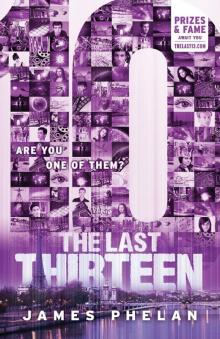 10
10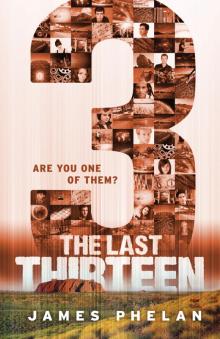 3
3 Survivor
Survivor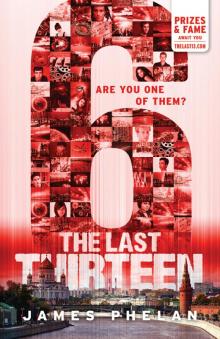 6
6 The Hunted
The Hunted Quarantine
Quarantine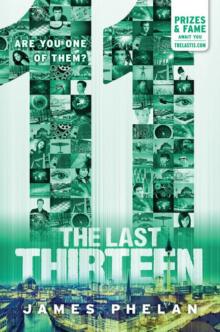 11
11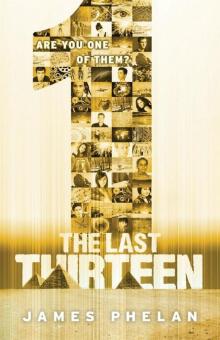 The Last Thirteen - 1
The Last Thirteen - 1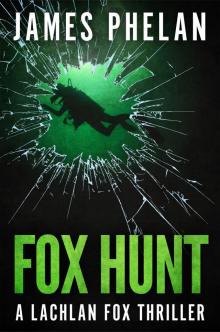 Fox Hunt
Fox Hunt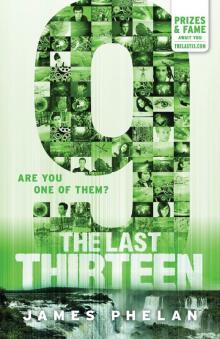 9
9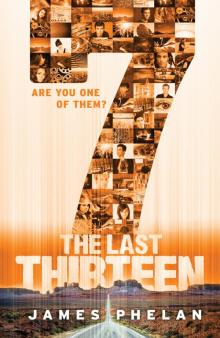 7
7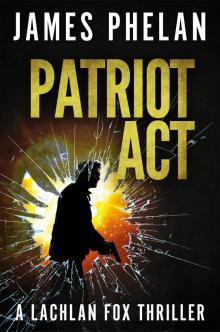 Patriot Act
Patriot Act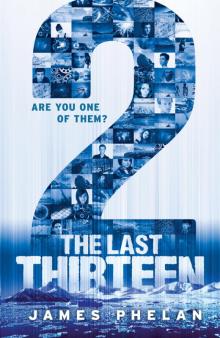 2
2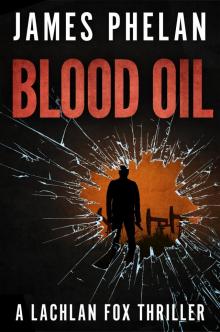 Blood Oil
Blood Oil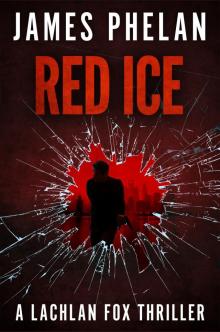 Red Ice
Red Ice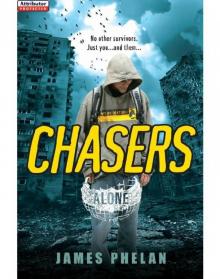 Chasers
Chasers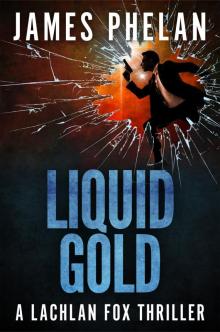 Liquid Gold
Liquid Gold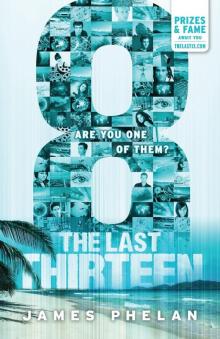 8
8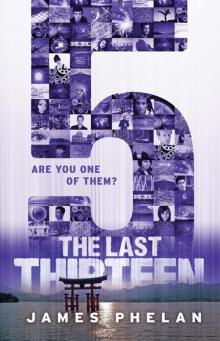 5
5 The Spy
The Spy Kill Switch
Kill Switch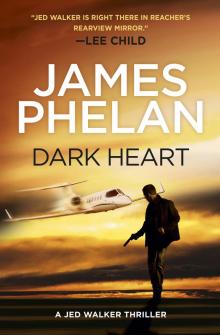 Dark Heart
Dark Heart